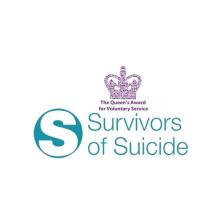
Bereavement
Grief is a complex and personal issue, and affects people in different ways. Help and support is available.

Bereavement
Grief is a normal process that we all experience after a bereavement. Grief affects everyone differently and is a complex and personal issue. It’s important to remember that there is no time limit to the feelings associated with grief. The journey could take months or years.
Grief can be made more difficult to deal with for many reasons:
- the way in which a loved one died;
- complicated relationships before death;
- traumatic or unexpected loss;
- losing someone to suicide;
- not getting to say goodbye.
Signs of grief
Grief can affect the body and mind and can change the thoughts, feelings and behaviour of those bereaved. This could include:
- shock and numbness;
- feelings of guilt or anger;
- feelings of sadness and depression [hyperlink to low mood depression];
- anxiety symptoms, like panic attacks or overthinking [hyperlink to anxiety page];
- feeling tired, exhausted or tearful;
- feelings of longing for the deceased;
- difficulty sleeping;
- loss of appetite or comfort eating;
- withdrawing from people (such as friends and family members), work and activities.
It is important to remember there is no ‘normal’ way to grieve. Even members of the same family or friendship group will grieve in very different ways, and how some people cope with their loss can be difficult for others to understand.
Effects of grief
It is normal to see, hear or sense someone who has died. Whilst this can be unsettling, it does not mean there is anything wrong. ‘Seeing and hearing’ a person who has died can happen because the brain is trying to process the death and accept it is final.
Things that might help manage grief
If you are experiencing grief, there are things you can do to help manage your feelings.
Talk to someone
Talking about the person who has died can be really helpful. You could talk to family, friends, a faith representative, your GP or someone from a support service.
Look after yourself
It might be hard, but try to get good sleep or at least some rest. Eating a healthy, balanced diet and avoiding nicotine, alcohol and other drugs should also help.
Be kind to yourself
- Give yourself time and permission to grieve.
- Do not feel guilty if you are struggling to cope.
- Take time for you. Others around you may also be grieving, but it’s okay to take time for you. Go for a walk, meet a friend – it is important not to isolate yourself.
Write down your thoughts and feelings
Writing down your thoughts and feelings following a bereavement can help clear your mind and calm repetitive or racing thoughts. This can also help you to talk to others about the person you have lost and how you are feeling about it.
Seek help and support
The feelings associated with grief should lessen with time. You can find out about support available in the Minding your head service directory.
If your feelings get stronger and stop you from being able to get on with day-to-day life, or if you experience suicidal thoughts, then it’s important to seek help through your GP or you can call Lifeline on 0808 808 8000.

Bereaved NI
Information and support if you are experiencing grief and bereavement or helping other people who are bereaved.

Lifeline
Lifeline is Northern Ireland’s crisis response helpline. Call Lifeline on 0808 808 8000.

Help is at hand booklet
Support after someone may have died by suicide in Northern Ireland.

Comkit
Comkit has developed an empathic communication toolkit to support families, communities, agencies and representatives in what to do and say at a time of heightened suicide concern.




